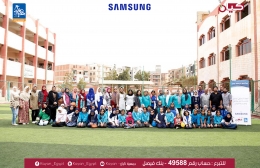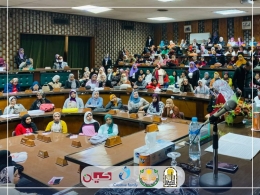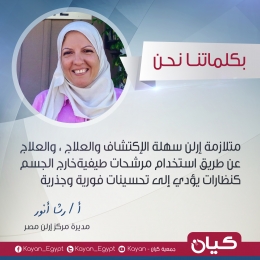"Law on the Rights of Persons with Disabilities 2018"
**Law on the Rights of Persons with Disabilities**
**Chapter One: General Provisions**
**Article (1):**
The purpose of this law is to protect the rights of persons with disabilities and to ensure their full enjoyment of all human rights and fundamental freedoms on an equal basis with others, enhance their dignity, integrate them into society, and secure a decent life for them.
**Article (2):**
A person with a disability is defined as any individual who has a total or partial impairment, whether physical, mental, intellectual, or sensory, provided that this impairment is stable and prevents them from engaging fully and effectively with society on an equal basis with others. The executive regulations of this law determine the procedures, conditions, and degree of disability that qualifies an individual as disabled under the provisions of the first paragraph of this article.
**Article (3):**
In applying the provisions of this law, the following words and phrases shall have the meanings indicated against each of them:
- **Council:** The National Council for Persons with Disabilities.
- **Impairment:** Structural, functional, or psychological deficiency affecting a part, organ, or system of the human body.
- **Dwarfism:** An individual not exceeding a height of 140 centimeters after puberty, regardless of the medical reason for that. Individuals with dwarfism have all the rights accorded to persons with disabilities from the time dwarfism is discovered.
- **Prevention:** A set of measures aimed at preventing impairment or minimizing it, early detection, and reducing its negative consequences, whether medical, psychological, social, educational, organizational, environmental, informational, or otherwise.
- **Empowerment:** Removing barriers and facilitating opportunities for persons with disabilities to develop their abilities and skills, obtain their rights, take on responsibilities, participate in planning and decision-making concerning their affairs, and contribute to community development.
- **Social Protection:** Persons with disabilities should enjoy all their rights on an equal basis with others, including their right to social security and a decent standard of living, as well as ensuring their participation in economic programs and policies that contribute to reducing poverty, exclusion, and inequality, thereby enhancing stability and social cohesion to meet their needs by securing income and access to health care and community inclusion, and protecting them from crises and disasters, thus achieving economic stability and social justice.
(And so on for other definitions related to communication, discrimination based on disability, accessibility, reasonable accommodations, inclusive integration, rehabilitation, etc.)
**Article (4):**
The state is committed to protecting the rights of persons with disabilities stipulated in this law or any other law, particularly the following rights:
1. Not to discriminate on the basis of disability or its type or the gender of the person with a disability, and to ensure actual equality in enjoying all human rights and fundamental freedoms in all fields, eliminating all obstacles that hinder their enjoyment of these rights.
2. To create suitable conditions for a dignified life in all aspects, respecting human dignity.
3. To create conditions that respect the differences of persons with disabilities as part of human diversity.
and so on through a list of specific rights including dignity, non-discrimination, access to education, health services, and employment opportunities.
**Chapter Two: Health Rights of Persons with Disabilities**
**Section One: Disability Identification Card and Integrated Services and Health File**
**Article (5):**
The Ministry of Social Solidarity, in coordination with the Ministry of Health, shall issue a Disability Identification Card and Integrated Services for each person with a disability, and a health file based on an approved medical diagnosis. The data in this card shall be recognized for evidencing the disability and its type and degree before all entities that the person with a disability interacts with, whether government or non-government, including judicial and investigative authorities. This card shall be renewed every seven years unless there is a change in the individual's disability status that necessitates re-evaluation.
(Continuing with sections on health rights, education rights, work rights, etc.)
---









Comments (544)